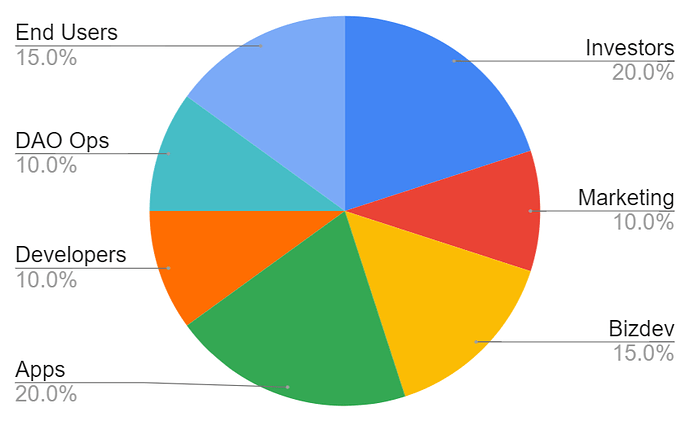Previous Reading
This is a continuation and refinement of a previous thread here and here. The scope below is intended to refine the scope ahead of a Snapshot proposal. This proposal incorporates some feedback from calls had with key stakeholders, while also moving towards the 100% NFT based system mentioned at the bottom of this post.
Note that below is v1. There are a number of future variations based on this base model.
Also note that the goal of this structure is GOOD GOVERNANCE, that leads to the maximal adoption of our protocol.
Overview
- Membership NFTs are given to value added members of the community. This would include: DAO workers, Working Groups, RARI stakers, Apps building on the protocol (among possibly other groups).
- Initial NFT holders will be Alex, Eric and Alexei, and will be added by vote (30% quorum majority vote)
- NFTs will be held in a multisig, and send to addresses once the vote has been passed.
- In order to remain in good standing, a member must remain active. As a group, we need to decide what this means. Initial thoughts include:
- A minimum amount of RARI staked
- a minimum level of participation and value added to our community / working group (s)
- alignment with our values
- For the time being, the staked RARI requirement be a fairly small amount (~$1000 equivalent). This parameter, for the time being, will be a variable which can be modified via a 2/3 multisig. The DAO will need to monitor (for the time being) once RARI becomes un-staked.
- We mint an initial 100 NFTs, with a cool design. These are the OG Membership NFTs.
How many Membership NFTs do we want to distribute?
Fairly soon after launch, I would expect a number of RARI stakers, a number of community members, and a number of projects to receive Membership NFTs (15+ NFTs soon after launch?). As the number of projects building on the protocol increases, I do not think we should prevent these groups from having a voice, we should keep distributing NFTs as the number of value added contributors increase.
In my opinion, we could eventually have hundreds of NFT holders. My gut feeling is that things will move closer to what was in the initial proposal, with groups or segments having a certain allocated % representation (below), as we will not want one group (for example: app developers) to have a disproportionate % of voting power, since this won’t likely lead to effective governance.
The current v1 proposal will almost surely need to be tweaked as we execute on this vision, and seek to improve our governance process.

 I’m also aware I’ve not been in some important calls so lack context.
I’m also aware I’ve not been in some important calls so lack context.
